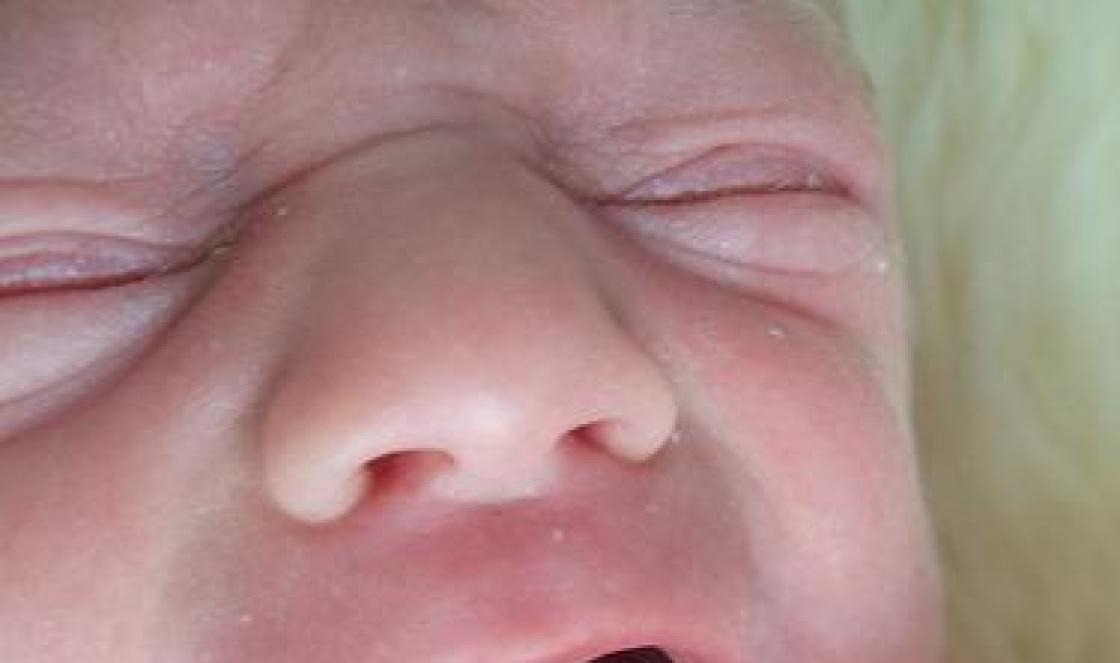Are getting closer new year holidays, in connection with which the question of how schoolchildren will relax during the winter holidays 2018-2019 becomes relevant academic year. Ministry of Education Russian Federation compiled several indicative schedules for different training systems.
Thus, children who study in quarters will have a rest from December 26, 2018 to January 8, 2019. As for those children who study in semesters and modules, for them winter holidays will occur twice - from December 29, 2018 to January 8, 2019 and from February 18 to 24, 2019.
How are the dates for the school New Year holidays of the 2019-2019 academic year formed?
The management of each school educational institution has the right to independently decide in what period to organize holidays for students. The decision is approved at a special meeting of the governing council, which, it should be noted, includes not only teachers and administration, but also the parents of the students themselves.
Since there are currently several educational systems, the Ministry of Education of the Russian Federation takes this fact into account and publishes several recommended schedules that guides should rely on educational institutions. Usually such schedules are adjusted as each school has its own needs and requirements. In connection with this fact, the final vacation schedule is published on the official website of a particular educational institution.
How long will the school New Year holidays last for the 2018-2019 school year?
For those schoolchildren whose educational process is divided into quarters, vacations traditionally last 7 days in autumn and spring, and as for the winter period, at this time the vacation period lasts 2 weeks. It should be noted that taking into account other holidays, school management has the right to add several days to the autumn or winter holidays.
In this regard, the approximate dates for the winter holidays are as follows: from December 26 of the current 2018 to January 8 of the next 2019. As for first-graders, additional holidays are provided for them, which will take place from February 25 to March 3. Such a measure is necessary in order to make the educational load on the child more moderate, and so that those students who are behind in the educational process can catch up on lost material.
For those studying in semesters or modules, winter holidays are provided for the period from December 29 of the current 2018 to January 8 of the next 2019, as well as from February 18 to 24 of the next 2019. For trimesters, the schedule will essentially be the same. Under this system, the year is divided into three academic parts (autumn, winter and spring), with holidays in between and an additional week of rest in the middle of each trimester.
The sun shines brighter, nature blossoms, but with humans it’s the other way around. The spring decline in children's well-being is especially noticeable: they study worse, complain of headaches, and fatigue. The reasons are clear: over the long winter, the body has used up its resources, vegetables and fruits have almost been lost healthy vitamins, the workload for many children is prohibitively high. But there is still the end of the school year ahead with its difficult tests, and some have exams coming up - transfer, graduation, entrance exams... How to help young and old during this period? The deputy director of the Institute of Age-Related Physiology of the Russian Academy of Education, Professor Valentin Syunkin, and the head of the laboratory of health-saving technologies at the same institute, Evgenia Babenkova, talk about this.
1. Most often, fatigue accumulates in children who do not follow the daily routine well. In the spring, it is not too late to arrange it - so that work alternates with rest, so that the child goes to bed on time, and at the same time, and does not get up at noon, even if he studies on the second shift. Observance of the regime must be taught, and not controlled, like a warden. Three “selfs” are important here - self-control, introspection, self-esteem. This will be useful for life.
2. The second reason for spring malaise is lack of movement. In winter, the days are short, many simply do not have enough time to take a walk or play outside. Now there is more daylight, so outdoor games and walks should be done daily.
3. Children who are physically weak or who are often ill often experience drowsiness in the spring. Do not interfere with your child's desire to sleep during the day on weekends. But remember: for younger schoolchildren, the most favorable sleep time is from 13 to 15.
The duration of rest should be a multiple of 45 minutes - this is the physiological sleep cycle.
4. Another reason for spring malaise is exorbitant ambition, and often not even of the child himself, but of his parents. Such children must certainly do everything in the best possible way, everywhere and in everything to be the first - but there are not enough reserves. Lower the bar of your requirements, give your child the opportunity to refuse something and do something to the minimum. It is impossible to be first everywhere.
5. Children, like adults, are divided into two main psychological types: “sprinters” and “stayers”. These features are already formed within 7-8 years. The first ones do everything quickly, often change activities, are impulsive, impetuous. The latter are slow and thorough; if they work hard at something, they cannot quickly get out of it. Observe your child and build his routine in accordance with his individuality. If you demand behavior that is contrary to his nature, you will ensure that the child becomes neurotic. Respect his individuality. Try to understand him.
6. Many parents complain that their child is lazy. However, the problem is not that simple. In principle, a child’s laziness, which appears from time to time, must be respected. Perhaps he is simply not interested in what he should be doing, and the protest is expressed in the form of laziness. It is also possible that this is a desire to protect oneself from excessive energy expenditure. But if a child is always lazy in everything, this is an alarming symptom. This means that something is wrong in the conditions that surround him. Analyze what your requirements are for him, when and why he became lazy. If you cannot figure out the reason yourself, you should contact a specialist.
7. Often at the end of the school year, children have or escalate a conflict with some teacher. The student is not always to blame for this. Teachers are real people, they also get tired, sometimes they can be unfair, but this is difficult for a child to understand. Children perceive injustice extremely acutely. Your task is to help get out of this situation with dignity. Best option- avoid aggravation of the conflict, extinguish it with a reasonable compromise. But the child should know well that he can count on you to stand up for him.
8. In spring, it is important to properly organize your nutrition. Children's diet should include vegetables, fruits, herbs, legumes, nuts, and meat. It is better not to involve the student in observing fasts, for child's body it's not safe. It is worth introducing multivitamins, rosehip tea, vitamin drinks from cranberries, lingonberries, etc. into your diet.
9. During this period, you should not limit your child’s sweets if he is not overweight or allergic to specific foods. Sweets are a supplier of carbohydrates, which are necessary for an intensively working brain. Firstly, chocolate is a source of calories, and secondly, the substances contained in natural chocolate relieve stress.
10. If a child has trouble sleeping, under no circumstances give him sleeping pills without consulting a doctor. It’s better to take a walk together for 30-40 minutes before going to bed. Then let him take a warm shower, drink a glass of warm milk with a spoon of honey. Sit next to him when he goes to bed, talk, caress him. Most of all, a child at this time, as in general, needs “vitamin L” - your love.
Photo: Yury Kisialiou/Rusmediabank.ru
The long-awaited summer holidays will begin very soon. But schoolchildren seem to be studying with all their might. But at the end of the school year, quizzes, tests and much more are held, on which the annual assessment depends. How to support a schoolchild at the end of spring?Walks and rest
You definitely need to spend at least an hour in the fresh air. It’s great if the child goes for a walk and... If this is not possible, you should go for a half-hour walk before bed. This will help you relax and sleep well.When it comes to sleep, your child should sleep at least eight hours a day. Moreover, before going to bed you should avoid noisy films or computer games. It's better to talk and read. It is useful to drink tea with lemon balm or milk with honey. If you have the desire and opportunity, you can arrange a quiet hour in the middle of the day. For example, immediately after school a child can sleep for an hour and then start homework.
During the day it is necessary not only to study, but also to relax. This can be done in different ways. It all depends on what the child wants to do. He can read, draw, play with friends. But you shouldn’t rest for 2-3 hours and start studying late in the evening. It’s better to rest for 1.5 hours, then do a couple of lessons and rest again for half an hour. That is, alternate between rest and study.
Health and immunity
In spring, the body needs additional vitamins and minerals. Therefore, during this period, the child may be excessively tired, constantly feel drowsiness, and apathy. In addition, due to reduced immunity in the spring, schoolchildren are susceptible to colds and flu. How to maintain your child’s health and strengthen his immunity?First of all, you need to adjust your diet. The child’s menu should include red fish, nuts, fresh vegetables and fruits, herbs, seafood, and honey. Don't forget about porridge. It is very useful to drink herbal teas and berry fruit drinks at this time. And in the spring, you shouldn’t limit your child’s sweets (within reasonable limits, of course). Dark chocolate, marshmallows, and marshmallows will help improve brain function. In addition, you can give your child a complex of vitamins and minerals.
An approximate menu for a student could be like this:
in the morning: porridge with berries and nuts, a sandwich with herbs and boiled meat, juice;
snack: fruit;
lunch: soup, baked red fish, salad, fruit drink;
afternoon snack: cottage cheese with honey;
dinner: omelet with vegetables and seafood, kefir;
before bed: herbal tea with a spoon of honey.
That is, the diet should be balanced and the menu should contain the most healthy products to strengthen the immune system.
Be sure to strictly adhere to the daily routine during this period. Sleep, food, study, rest, walks - all this should be on time. Don't do homework before 11 pm or skip a walk. It is the correct daily routine that will help the child feel better and not become overtired.
Psychological moments
The emotional state of the child is very important during this period. After all, on the one hand, the student needs to gather strength and finish the school year well, on the other hand, he does not have enough strength to study.Therefore, it is necessary to encourage the child and create the most comfortable conditions for studying.
Here are some tips:
resolve conflicts in a timely manner– the end of the school year is not the time for quarrels. Therefore, it is important to avoid conflicts both in the family and between student and teacher;
hug and stroke more often– the child needs to be hugged more often, pitied, and told that you love him. Even if a child is not too eager for hugs (this is especially true for teenagers), he still needs them;
dampen ambition for grades– some children are perfectionists and worry even about getting a B grade. It is worth explaining to the student that a couple of not excellent, but satisfactory grades will not change anything in the overall picture of academic performance. This means that you need to care about gaining knowledge more than getting excellent grades;
respect laziness– laziness is the body’s protective reaction to stress. Therefore, sometimes a child needs to be allowed to be lazy, but everything should be within reason;
reduce the load– perhaps you should give up extracurricular activities for a couple of days or weeks and devote more time to studying. However, if a child really wants to go to drawing classes, for example, you should not dissuade him. It is quite possible that this is where the student takes a break from studying;
determine how it is possible motivate the child– someone is helped by the threat of deprivation long-awaited event, and someone needs a reward for good grades.
And one more thing: if it is clear that the child is very tired, you should choose one day a week (when there are no serious lessons or no tests or independent work) and skip him. But this can be practiced extremely rarely, otherwise the student will understand that it is possible to skip school. If the child is really exhausted, and there is still more to study and learn, such a rest will help him shake himself up.
13.05.2014 15:55:00
Of course, summer is everyone’s favorite and anticipated time of year, when the sun, air, water and ice cream delight us with their presence and maximum activity, but there is one serious problem: how to organize a schoolchild’s leisure time for three months of vacation?
This issue cannot be resolved immediately; a serious approach and an almost strategic plan of action are needed, because it is at this time that parents need the child to improve his health, rest, gain as much strength as possible and not be left alone at home, surrounded by TV and computer games.
We will tell you today in our article what you need to do at the end of the school year, and what options exist for organizing your child’s summer pastime.
School results
The end of the school year is approaching, it’s time to take stock and evaluate achievements. Together with the child check the books , which need to be handed over to the library, glue them, if necessary, wipe off traces of a simple pencil.
Inspect workplace : perhaps the room needs some cosmetic repairs, an older student needs a new chair or the table needs repairs. Check to see if your child has enough space; he or she may need new shelves, an additional cabinet or drawers for stationery.
Compose advance list stationery items necessary for the next school year: it is most likely too early to buy something, but it will not be superfluous to note that the child has run out of plasticine, a glue stick or a broken ruler. Attach the list near the student’s workplace and when you make the necessary purchases, purchase everything you need without forgetting anything.

In many schools at the end of the year it happens final parent meeting , on which class teacher talks about how children have changed during their studies. At such a meeting, try to clarify with the teacher all the questions you are interested in regarding education, listen to the teacher’s opinion about academic performance, the need for additional classes and the child’s behavior at school in general.
Checking your health
Check vision and understand whether the child has any problems with posture , isn't it starting - must have summer season. Don’t wait for the child to complain on his own; he may be so used to squinting and seeing poorly that he doesn’t even notice the discomfort. Also keep your child's vision under control if he already wears glasses, since, for example, myopia can seriously progress even over a few months.
We are writing a plan for the summer
Of course, 90 days of summer are wonderful, but as we said above, someone must be with the child for all these 90 days. Parents' vacation rarely exceeds 24 days, and in our time this is still quite a long period, and most often parents can afford to spend no more than two weeks on vacation with the whole family. And if a student in grades 8-9 can still at least sometimes be left at home on his own, then for a 7-8 year old student it is simply necessary to organize leisure time under the supervision of adults. What can you come up with?
Summer school camp. For the period of June, many schools provide children and parents with the opportunity to take advantage of the services of a camp operating on the basis of their own educational institution. Most often, the child will be able to stay in such a camp until lunch, less often - the whole day. The cost of a child's stay at a school camp is low. During the day, children will be under the supervision of school teachers, will be able to study in clubs and sections, and go on excursions.

Summer city camp . Usually, in such a camp, children gather on a territorial basis, not far from home, but if you have the opportunity to take your child to a camp on the other side of the city, there will also be no problems with the arrangement. Throughout the day in summer city camps, the child is under the supervision of experienced teachers and spends his free time profitably. While staying in such a camp, the child will be able to improve his communication skills with children. of different ages, discover creative talents and learn new things at master classes, take part in games and competitions in the fresh air and attend thematic excursions. If the camp has a sports direction, children will be taught various types sports, for example, wakeboarding, water skiing, horseback riding, etc.
Our mother Hannah writes: “I have two alternative options for the summer: city camp and nanny. Last year, my daughter stayed in a city camp for 4 weeks, but she didn’t get tired of it and asked for more. Every week and every day was themed. The children walked a lot, walked around the entire city center, visited many museums, and staged some mini-performances. In general, the child was not bored.”
Specialized summer camp (health, sports, linguistic)
Does the child have any health problems? You can send it to sanatorium-type camp . Most often, in order to get into such a camp, you need a doctor’s referral or an extract from the child’s medical record. The main emphasis in a sanatorium-type children's camp is on all kinds of preventive and therapeutic procedures.
An excellent option to improve your foreign language and practice speaking - I language children's summer camps . The most successful proposal is if the camp is located directly in the country whose language is proposed to be studied, in which case the child is guaranteed complete immersion in the language environment, which, of course, increases the effectiveness of learning. As a rule, the program of language camps also includes a variety of excursions that allow children to get acquainted with the culture of the country whose language they are studying.






